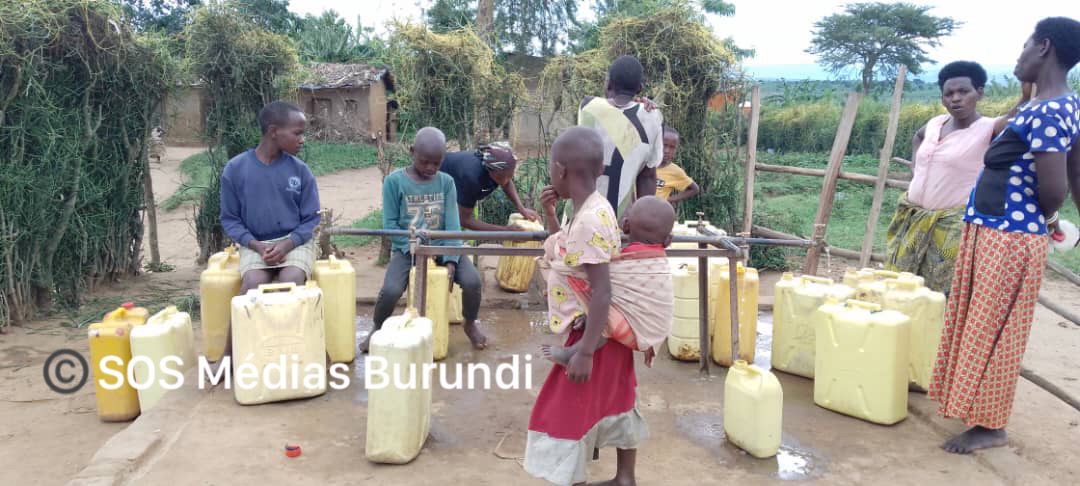In Nakivale camp, thirst and disease threaten more than 150,000 refugees

SOS Médias Burundi
Nakivale, August 19, 2025 – A month has passed without a single drop of water flowing from the public taps in Nakivale camp. The consequences are serious in hospitals, which are warning of the outbreak of diarrheal diseases.
All the taps and fountains in Nakivale camp are dry. This is because the camp has been facing a shortage of drinking water for some time.
« I can swear we’ve already spent a night without eating, not because I didn’t have a ration, but rather because I didn’t have water to cook with, » says a man who had just bought a 20-liter container for 2,000 Uganda shillings, three times the normal price of this commodity.
Worse still, « it’s not even drinking water! » he explains. It’s river water drawn at least 25 km from the camp by vendors who bring it back on bicycles.
Refugees living near the valleys are still trying to dig wells to fetch water, in vain.
In early August, those living in Kashojwa B village were lucky enough to find water in a well at least 10 m deep. « The entire camp flocked to this natural spring, and within 24 hours, the water ran out. This place was creating insecurity due to fights and conflicts, » refugees report.
The water problem has already had its consequences. Health facilities are warning of the emergence of diarrheal diseases, especially among children under five years of age and pregnant and/or breastfeeding women.
Furthermore, several vegetable fields are drying up daily due to lack of irrigation. « We can’t get water for cooking or irrigation, » lamented refugees who had just drawn water from Lake Nakivale, located about ten kilometers from the camp.
The camp’s sanitation manager explains that this shortage of drinking water is due to the dry season. The refugees, for their part, are demanding that the UNHCR and the Prime Minister’s Office for Refugees take necessary steps to include this vital commodity on the assistance list.
Beneficiaries also denounce a lack of planning by the UNHCR and its partners, who were unable to anticipate in time the challenges the camp and surrounding host communities face each year during the dry season.
Nakivale is home to more than 150,000 refugees, including 33,000 Burundians.

